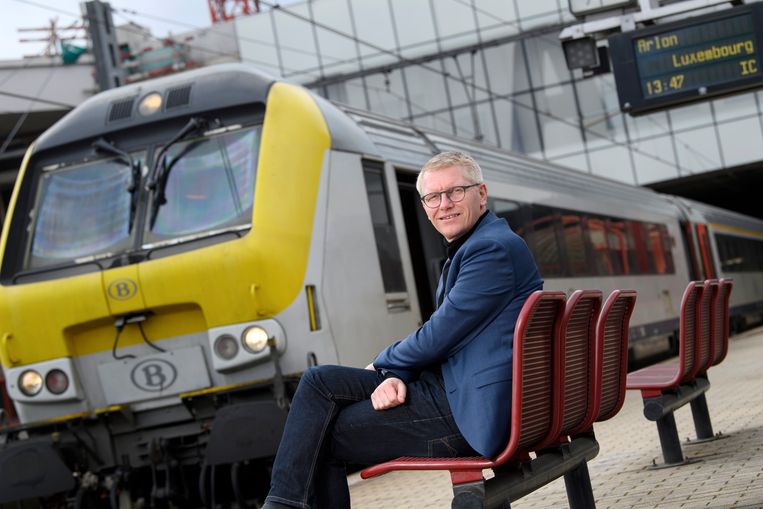Today, 31 March, is the last day to use the free rail pass offered by the government of Sophie Wilmès at the start of the pandemic. But figures from the mobility ministry of Georges Gilkinet (Ecolo) suggest the pass was used far less often than intended.
The pass was announced last year: all adult Belgian residents could apply for one, offering 12 free one-way rail journeys (one return journey a month, essentially), valid from 5 October 2020 until 31 March 2021.
The idea was to help support the rail authority SNCB, then suffering the effects of the first lockdown, the ban on non-essential travel and the imposition of teleworking.
The offer was eagerly taken up by the public, with 3.5 million people applying, but according to figures from the ministry requested by Tomas Roggeman (N-VA), only 30% of the available trips were actually taken up in the first three months. Of a possible 21 million one-way journeys offered for free, only six million were actually used.
“Pretty logical: at the start of the period of the Railpass, almost all tourist attractions and catering establishments had to close again,” Roggeman said.
Related News
- 'SNCB is not police, we cannot take on everything,' rail company's CEO says
- SNCB says to avoid travelling to the coast tomorrow after heavy crowds today
- SNCB offers free train tickets to Belgian coronavirus vaccination centres
Several factors worked against the success of the pass. In the first place, it had originally been intended for use during the summer, to support not only the SNCB but also local domestic tourism. But because of disputes with coastal mayors and the SNCB itself, the introduction of the pass was delayed twice, and only introduced in October, by which time the appetite for domestic tourism had waned.
And, as Roggeman pointed out, cafes and restaurants by then had closed again, removing the incentive to use the pass to have a Rodenbach with tomate-crevettes on the sea-front, or a waffle with strawberries and cream anywhere else.
The Railpass came along with a government subsidy of €110 million, or roughly €2.60 per journey, for the SNCB. But if only 30% of trips were used, should the SNCB not pay back some of that sum, Roggeman wondered in De Morgen.
But according to Gilkinet’s office, that won’t be necessary. The sum of €110 million was intended to be general compensation to the SNCB not for free rail trips, but for the effects of the coronavirus in general. “But there will of course be an evaluation of the system,” a spokesperson told the paper.
Alan Hope
The Brussels Times

